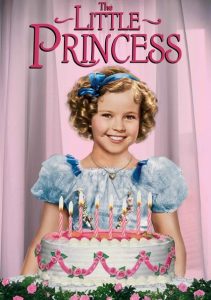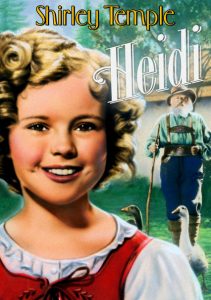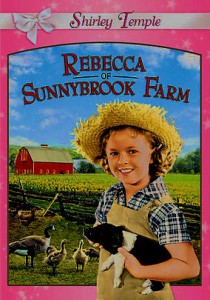The Little Princess-1939
Director Walter Lang
Starring Shirley Temple, Ian Hunter
Scott’s Review #827
Reviewed November 6, 2018
Grade: B+
The Little Princess (1939) is a latter-day Shirley Temple film released when the child star’s popularity declined.
The film is also Temple’s first production filmed in Technicolor and the last of her major successes. It is perfect, though not the first I would choose as a starting point in her collection. The film is saccharin, wholesome, and predictable, which are also adjectives audiences adore about the star’s cinematic projected film, looselyosely based on A Little Princess by Frances Hodgson Burnfilm, was criticized at the time release for deviatingaying too far from the original novel.
The time is the turn of the century in England, and the backdrop is the Boer War. The film’s setting is a highlight for American audiences amidst the First World War and on the cusp of World War II, allowing for a timely and relevant film quality.
In the story, Temple plays Sara, the wealthy daughter of a military Captain (Ian Hunter) who is left to reside in a well-to-do girl’s school when her father is called away to serve in the war. When he unexpectedly dies in battle, Sara is left penniless and forced to work as a servant in the school she once attended.
At first, the staff treats Sara like royalty, but her treatment gradually harbors resentment among the principals, especially the dastardly headmistress (Mary Nash). Sara keeps her chin up, insisting that her father is not dead, and she becomes determined to find him in a local hospital.
In 2018, Shirley Temple’s films mainly served as a source of nostalgia rather than critical acclaim or cinematic dissection—what was the point?
Her films are a wholesome trip back memory lane to a simpler time for many. Ironic that the film is the first color picture in the collection, this detracts from the enjoyment and adds too much of a modern element foreign to Temple fans.
My preference is for the black-and-white productions of the early and mid-1930s.
The supporting characters spice up The Little Princess quite a bit.
Most notable is Cesar Romero as neighbor Ram Dass, who fills the void Sara needs after losing her father. The chemistry between Romero and Temple is terrific, and in a tender scene, the kindly Dass leaves warm blankets for Sara.
As the main villainous, common in Temple films, Mary Nash, as Miss Minchin, does her job flawlessly. As the main foil, Nash perfectly blends rigid mannerisms and the brunt of Sara’s tension.
The overall tone of The Little Princess (1939), hence the title, contains a riches to rags, Cinderella in reverse, type of story. The film is above average but not the best in the bunch.
Venturing to say that the film is a forgotten work save for the Shirley Temple series fans, it does what it sets out to do and entertains.
With drama, musical numbers, and a happy ending, the result is a similar experience to her many other films.


